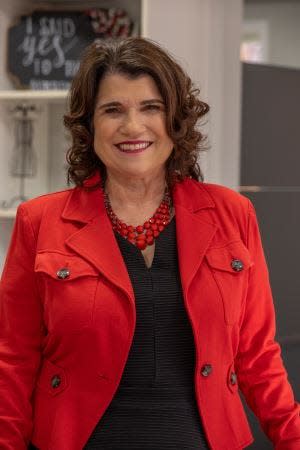Afghan refugees needed dental care; Iowans made it happen
- Oops!Something went wrong.Please try again later.
When 700 Afghan refugees arrived in central Iowa in 2022, they began the overwhelming process of settling into a new community — one unlike any they’d ever seen. A strange landscape. A foreign language. A new life. To help them get some level of comfort in a place thousands of miles from their homes, they received support from the federal and state government.
The timeline for refugees to get settled? 90 days. During this time, the government provides funding and support to help the refugees access housing, coordinate medical care, and find transportation. In practice, refugees get three months to settle in a brand-new country.
There’s another critical thing that refugees need in those 90 days: a dental appointment. Many Afghan refugees are in desperate need of oral health care. Making the situation even more challenging, many don’t know the English language and have never set foot inside a dental office.
Broadlawns Medical Center is a safety net hospital that strives to build a healthy community in which there is accessible, cost-effective and high-quality patient care for all, including refugee populations. In support of the resettlement of the Afghan refugees in Des Moines, the Broadlawns Medical Center dental professionals partnered with the local community health center Dental Connections to assist the refugees in establishing dental homes. The experience revealed some important lessons about oral health care, dental anxiety, and the value of community partnering.
You don’t have to be a refugee to relate to dental anxiety. Studies have shown that up to 80% of Americans have experienced dental fear and anxiety. Imagine your tooth pain has been building for months. It’s compounded by the stress of being forced to flee your home and figure out life in a new country. And you’ve never visited a dentist before.
Understandably, there was a lot of fear among this population when walking into a dental office for the first time. Despite a concerted effort to streamline refugees and give them a higher priority and more care coordination, there was a huge gap, not only in language, but in basic knowledge of oral health. Some people didn’t know what a cavity was. Many required a lot of extractions, but they wanted to keep their infected teeth. They were terrified of drilling, or even X-rays.
Ninety days was not going to be enough time to effectively care for all of these patients who were already dealing with so much.
Thanks to funding and partnership with CareQuest Institute for Oral Health, Delta Dental of Iowa Foundation, along with BMC and Dental Connections, we were able to offer this pilot project to assist Afghan refugees in establishing a dental home and to receive emergency dental care within their initial 90 days of resettlement
The value of this goes beyond being the right thing to do. Without access to dental care, people are more likely to seek treatment in emergency departments for oral pain. In fact, dental-related emergency department visits nationwide cost an estimated $3.4 billion per year, but nearly 79% of those visits could have been addressed in a dental office, saving up to $1.7 billion per year, according to the American Dental Association’s Health Policy Institute. What’s more, we know that good oral health is essential to overall health, with links to systemic diseases including heart disease, diabetes, stroke and more. It is also directly linked to economic mobility and job success.
Grants like the one from CareQuest Institute are an important way to increase support for refugees and underserved populations when they need it most. But they are just one part of the solution. There are still far too many people in our communities who consistently lack access to dental care.
Ultimately, we must move toward systemic change. That means improving the dental provider network and access to care generally, increasing oral health education, and ensuring that states provide comprehensive Medicaid adult dental benefits (Iowa is ahead of the curve in providing extensive Medicaid benefits for adults, and the Afghan refugees have access to Medicaid for a year).
We’ve learned a lot from this experience — including that Iowans should be proud of the way we have welcomed the Afghan refugees into our community over the past year.
By working collaboratively across corporate, private and community sectors, we can identify and fund life-changing health equity initiatives and programs. We’ve also learned that we can and must do more to provide a health care experience and system that treats people as a whole. One that works to address the complex barriers that people face to accessing health care, including oral health and dental anxiety. One that is accessible, affordable, and equitable. If we can do that, everyone will benefit.

Mary Kelly is a registered dental hygienist and a former care coordinator at Broadlawns Medical Center.
This article originally appeared on Des Moines Register: Afghan refugees needed dental care, and Iowans made it happen
